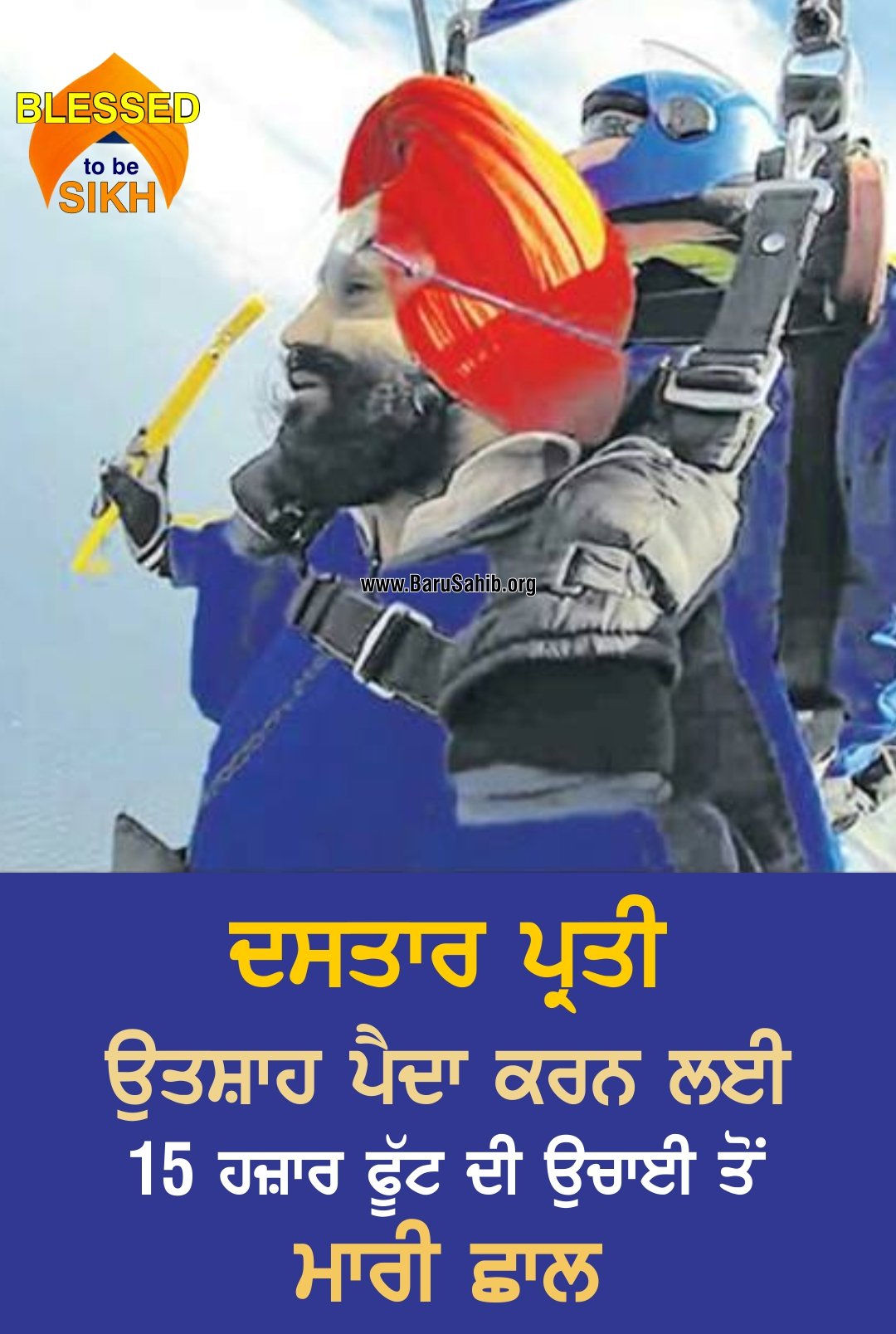ਸ੍ਰੀ ਗੁਰੂ ਗੋਬਿੰਦ ਸਿੰਘ ਜੀ ਮਹਾਰਾਜ ਜਦੋਂ ਦੀਨੇ ਕਾਂਗੜ ਵਿਚ ਪਿੱਛੇ ਆ ਰਹੀ ਸ਼ਾਹੀ ਫੌਜ ਦਾ ਟਾਕਰਾ ਕਰਨ ਲਈ ਤਿਆਰੀਆਂ ਕਰ ਰਹੇ ਸਨ ਤਾਂ ਅਬਲੂ ਤੇ ਮਹਿਮੇ ਕਿਆਂ ਦਾ ਪੋਤਾ-ਪੜੋਤਾ, ਮਹਿਮੇ ਸਰਜੇ ਦਾ ਵਸਨੀਕ, ਭਾਈ ਚੜ੍ਹਤ ਸਿੰਘ ਦਾ ਭਰਾ ਬਾਬਾ ਦਾਨ ਸਿੰਘ ਬਹੁਤ ਸਾਰੇ ਬਰਾੜ ਸਿੰਘਾਂ ਨੂੰ ਨਾਲ ਲੈ ਕੇ ਹਾਜ਼ਰ ਹੋਇਆ ਤੇ ਖਾਲਸਾ ਫੌਜ […]
ਸ੍ਰੀ ਗੁਰੂ ਗੋਬਿੰਦ ਸਿੰਘ ਜੀ ਮਹਾਰਾਜ ਜਦੋਂ ਦੀਨੇ ਕਾਂਗੜ ਵਿਚ ਪਿੱਛੇ ਆ ਰਹੀ ਸ਼ਾਹੀ ਫੌਜ ਦਾ ਟਾਕਰਾ ਕਰਨ ਲਈ ਤਿਆਰੀਆਂ ਕਰ ਰਹੇ ਸਨ ਤਾਂ ਅਬਲੂ ਤੇ ਮਹਿਮੇ ਕਿਆਂ ਦਾ ਪੋਤਾ-ਪੜੋਤਾ, ਮਹਿਮੇ ਸਰਜੇ ਦਾ ਵਸਨੀਕ, ਭਾਈ ਚੜ੍ਹਤ ਸਿੰਘ ਦਾ ਭਰਾ ਬਾਬਾ ਦਾਨ ਸਿੰਘ ਬਹੁਤ ਸਾਰੇ ਬਰਾੜ ਸਿੰਘਾਂ ਨੂੰ ਨਾਲ ਲੈ ਕੇ ਹਾਜ਼ਰ ਹੋਇਆ ਤੇ ਖਾਲਸਾ ਫੌਜ ਵਿਚ ਸ਼ਾਮਿਲ ਹੋ ਗਿਆ।
ਸ੍ਰੀ ਗੁਰੂ ਗੋਬਿੰਦ ਸਿੰਘ ਜੀ ਜਦ ਕੋਟਕਪੂਰਾ ਪਹੁੰਚੇ ਤਾਂ ਕਪੂਰੇ ਤੋਂ ਆਰਾਮ ਵਾਸਤੇ ਗੜ੍ਹੀ ਮੰਗੀ ਪਰ ਕਪੂਰੇ ਨੇ ਮੁਗਲਾਂ ਦੇ ਡਰ ਤੋਂ ਗੜ੍ਹੀ ਦੇਣ ਤੋਂ ਇਨਕਾਰ ਕਰ ਦਿੱਤਾ। ਕਪੂਰਾ ਗੁਰੂ-ਘਰ ਦਾ ਅਨਿੰਨ ਸੇਵਕ ਸੀ। ਅਨੰਦਪੁਰ ਸਾਹਿਬ ਵਿਖੇ ਵਧੀਆ ਨਸਲ ਦੇ ਘੋੜੇ ਤੇ ਸ਼ਸਤਰ, ਧਨ ਆਦਿ ਦੀ ਸੇਵਾ ਗੁਰੂ ਜੀ ਦੀ ਕਰਦਾ ਸੀ। ਚੌਧਰੀ ਕਪੂਰੇ ਨੇ ਗੁਰੂ ਜੀ ਦਾ ਹੁਕਮਨਾਮਾ ਪੜ੍ਹ ਕੇ ਆਪਣੇ ਘੋੜਸਵਾਰ ਬਾਬਾ ਦਾਨ ਸਿੰਘ ਵੱਲ ਭੇਜ ਦਿੱਤੇ। ਭਾਈ ਦਾਨ ਸਿੰਘ ਤੇ ਚੌਧਰੀ ਕਪੂਰੇ ਨੂੰ ਜਦ ਪਤਾ ਲੱਗਾ ਕਿ ਬਾਈਧਾਰ ਦੇ ਰਾਜੇ ਗੁਰੂ ਸਾਹਿਬ ਉੱਪਰ ਚੜ੍ਹਾਈ ਕਰਕੇ ਆ ਰਹੇ ਹਨ ਤਾਂ ਭਾਈ ਦਾਨ ਸਿੰਘ ਨੇ ਗੁਰੂ ਸਾਹਿਬ ਦੇ ਟਿਕਾਣੇ ਤੋਂ ਕੁਝ ਕਿਲੋਮੀਟਰ ਪਹਿਲਾਂ ਹੋ ਕੇ ਜ਼ਾਲਮਾਂ ਨਾਲ ਯੁੱਧ ਕੀਤਾ। ਮੁਕਤਸਰ ਦੀ ਜੰਗ ਵਿਚ ਬਰਾੜ, ਫੂਲ, ਮਾਨ, ਮਰਾੜ ਕੇ, ਭੁੱਲਰ ਆਦਿ ਨੇ ਬਹੁਤ ਬਹਾਦਰੀ ਦਿਖਾਈ ਅਤੇ ਉਪਰੋਕਤ ਜਾਤਾਂ ਦੇ ਲੋਕਾਂ ਵੱਲੋਂ ਮਿਲੇ ਸਹਿਯੋਗ ਸਦਕਾ ਹੀ ਗੁਰੂ ਜੀ ਨੂੰ ਇਸ ਜੰਗ (ਯੁੱਧ) ਵਿਚ ਫਤਹਿ ਹਾਸਲ ਹੋਈ।
ਬਾਬਾ ਦਾਨ ਸਿੰਘ ਦੇ ਚਾਰ ਸਪੁੱਤਰ ਸਨ ਅਤੇ ਉਨ੍ਹਾਂ ਨੇ ਆਪਣੇ ਪਿਤਾ ਦੇ ਨਾਂਅ ‘ਤੇ ਪਿੰਡ ਬੰਨ੍ਹਿਆ, ਜਿਸ ਨੂੰ ਪਿੰਡ ਦਾਨ ਸਿੰਘ ਵਾਲਾ ਕਹਿੰਦੇ ਹਨ ਅਤੇ ਆਪਣੇ ਬਾਬੇ ਦਾਨ ਸਿੰਘ ਦਾ ਬੁੱਤ ਬਣਾ ਕੇ ਪਿੰਡ ਵਿਚ ਵੀ ਲਾਇਆ ਹੋਇਆ ਹੈ। ਇਹ ਪਿੰਡ ਗੋਨਿਆਣਾ ਮੰਡੀ ਤੋਂ 8 ਕਿਲੋਮੀਟਰ ਹੈ। ਬਾਬਾ ਦਾਨ ਸਿੰਘ ਦੇ ਇਕ ਲੜਕੇ ਦਾ ਨਾਂਅ ਗੁਰਬਖਸ਼ ਸਿੰਘ ਸੀ। ਪਿੰਡ ਮਹਿਮਾ ਸਰਜਾ ਤੋਂ 4 ਕਿਲੋਮੀਟਰ ਦੂਰ ਬਾਬਾ ਦਾਨ ਸਿੰਘ ਦੇ ਨਾਂਅ ‘ਤੇ ਵਸਿਆ ਨਗਰ ਸਥਿਤ ਹੈ।
ਕਰਨੈਲ ਸਿੰਘ ਐਮ ਏ










